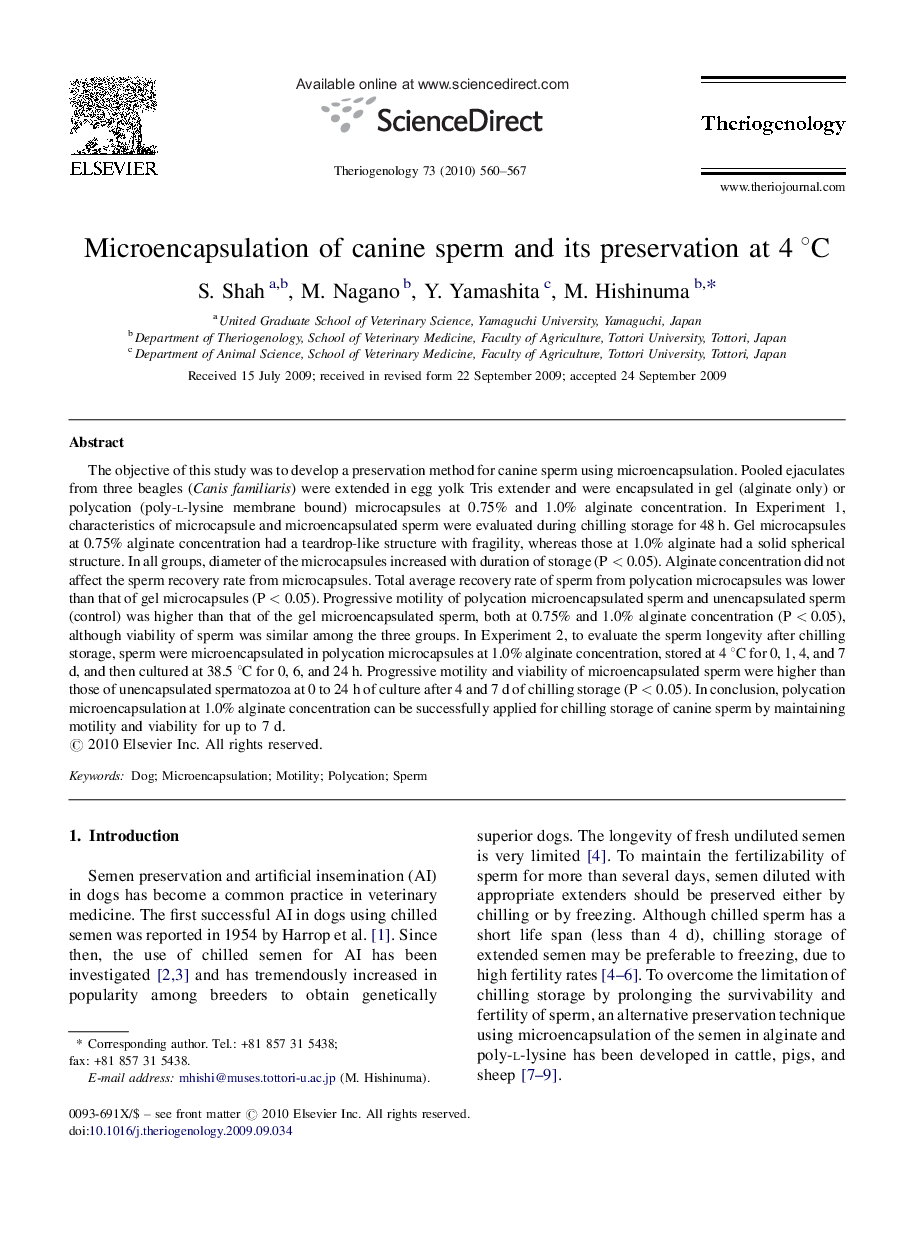| Article ID | Journal | Published Year | Pages | File Type |
|---|---|---|---|---|
| 2095600 | Theriogenology | 2010 | 8 Pages |
The objective of this study was to develop a preservation method for canine sperm using microencapsulation. Pooled ejaculates from three beagles (Canis familiaris) were extended in egg yolk Tris extender and were encapsulated in gel (alginate only) or polycation (poly-l-lysine membrane bound) microcapsules at 0.75% and 1.0% alginate concentration. In Experiment 1, characteristics of microcapsule and microencapsulated sperm were evaluated during chilling storage for 48 h. Gel microcapsules at 0.75% alginate concentration had a teardrop-like structure with fragility, whereas those at 1.0% alginate had a solid spherical structure. In all groups, diameter of the microcapsules increased with duration of storage (P < 0.05). Alginate concentration did not affect the sperm recovery rate from microcapsules. Total average recovery rate of sperm from polycation microcapsules was lower than that of gel microcapsules (P < 0.05). Progressive motility of polycation microencapsulated sperm and unencapsulated sperm (control) was higher than that of the gel microencapsulated sperm, both at 0.75% and 1.0% alginate concentration (P < 0.05), although viability of sperm was similar among the three groups. In Experiment 2, to evaluate the sperm longevity after chilling storage, sperm were microencapsulated in polycation microcapsules at 1.0% alginate concentration, stored at 4 °C for 0, 1, 4, and 7 d, and then cultured at 38.5 °C for 0, 6, and 24 h. Progressive motility and viability of microencapsulated sperm were higher than those of unencapsulated spermatozoa at 0 to 24 h of culture after 4 and 7 d of chilling storage (P < 0.05). In conclusion, polycation microencapsulation at 1.0% alginate concentration can be successfully applied for chilling storage of canine sperm by maintaining motility and viability for up to 7 d.
